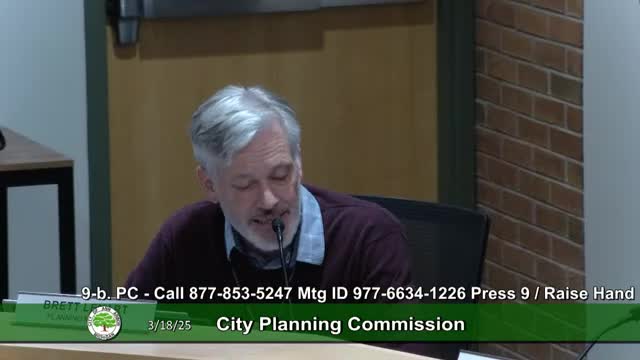Article not found
This article is no longer available. But don't worry—we've gathered other articles that discuss the same topic.
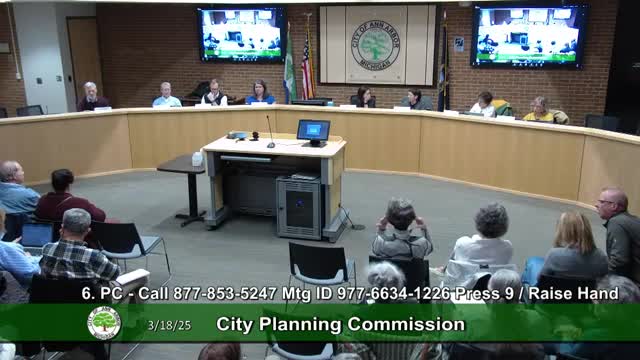
Planning Commission approves rewrite of citizen participation rules, tightening timing and requiring meeting summaries
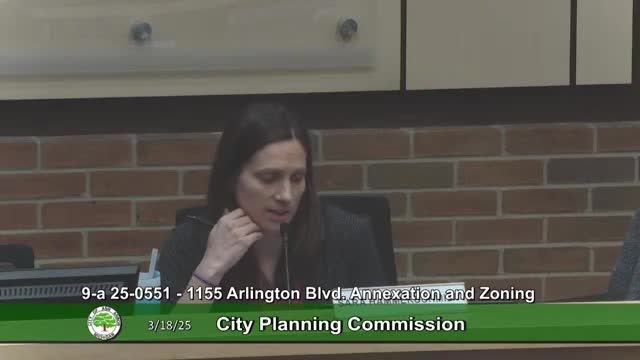
Planning Commission recommends annexation of 1155 Arlington Boulevard and zoning to R1A after split vote on denser alternative
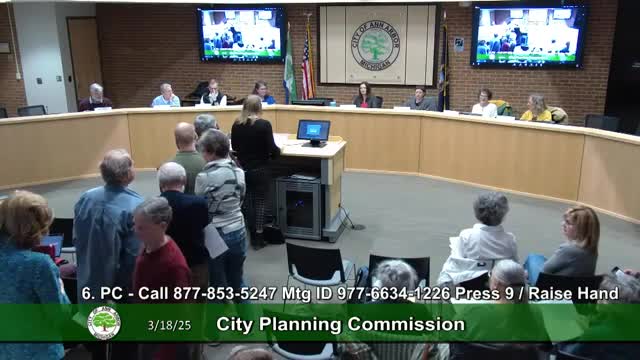
Ann Arbor Community Land Trust asks commission for expedited approvals, fee waivers and zoning changes for permanently affordable homes

Residents urge caution on citywide upzoning: parking, infrastructure, trees and affordability top concerns
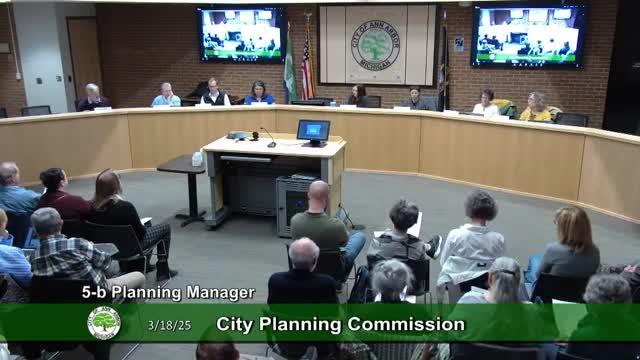
Planning staff outlines compressed schedule for Ann Arbor comprehensive plan; commissioners ask for more review time
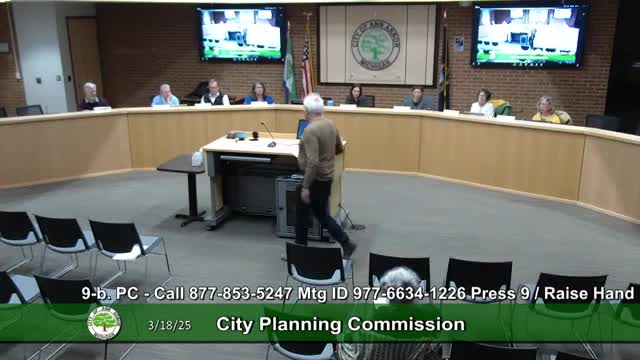
Commission backs UDC change allowing parcel owners within a PUD to seek parcel‑specific modifications
